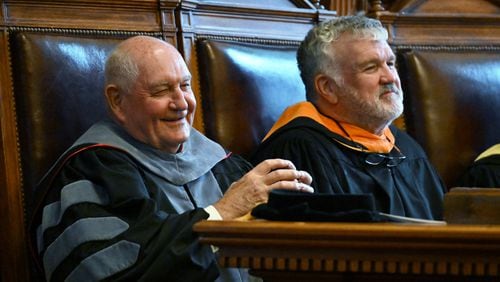The State Election Board has issued subpoenas to find out whether there’s substance behind accusations of a ballot collection scheme in the 2020 election in Georgia.
The subpoenas, sent Thursday, seek evidence of allegations that unnamed organizations paid unnamed individuals $10 per absentee ballot delivered to drop boxes across metro Atlanta.
The practice of collecting multiple absentee ballots, sometimes called ballot harvesting, is illegal in Georgia, with exceptions for family members and caregivers of disabled voters. Ballot harvesting, if it occurred, wouldn’t invalidate legitimate ballots turned in by unauthorized individuals.
The subpoenas followed a Nov. 30 complaint by True the Vote, a conservative election organization, which didn’t provide details supporting its allegations. The State Election Board voted last month to issue the subpoenas.
“They need to provide us the names of those people that they say harvested the ballots. We’re going to find out who they are and where they live, were they paid, and how much were they paid,” Secretary of State Brad Raffensperger said Saturday during a debate in Ellijay.
The subpoenas compel True the Vote to turn over documents, recordings and names allegedly connected to ballot harvesting. The subpoenas also require depositions of True the Vote founder Catherine Englebrecht and her colleague Gregg Phillips.
The True the Vote complaint repeated several allegations that the GBI previously reviewed in the fall before declining to open an investigation. The organization said it tracked cellphone signals to show illegal ballot collection at ballot drop boxes.
GBI Director Vic Reynolds said in September that “an investigation is not justified” because there was no other evidence tying cellphone signals to ballot harvesting.
The subpoenas will provide information to investigators in the secretary of state’s office. When they finish the investigation, they’ll present findings to the State Election Board, which has the power to levy fines or refer cases to prosecutors.
About the Author








